Si Steers assesses the structure of Liverpool FC, why managing the Reds demands sustained success, and adds to the calls for a Sporting Director.

Let’s face it, when judging any manager at Liverpool it is always against the achievements of the past. ‘First is first and second is nowhere’ is a fine philosophy and ambition – but it is also sometimes a noose around a managers neck at the club – as anything other than that is deemed as embracing mediocrity.
We have been fortunate to have had some transformational and world class managers throughout our history; but, it would be interesting to see how the likes of Bill Shankly and Bob Paisley operated (and survived) in today’s game. The difficulty managers have at Liverpool in today’s game is that there is a gap between expectation and reality – we walk like a big club, we talk like a big club, but the truth is we are trying to regain, not retain our status as a big club.
This makes the manager’s job almost an impossible task – it doesn’t matter if you reach 2 European Cup finals in five years (winning one of them), or come agonisingly close to winning a first league title in twenty years – there will always be a demand for more.
Of course, a pre-requisite for any manager at the club should be ambition. They should recognise that winning is at the heart of the club’s DNA – and align everything they do to making the club the very best it can. But the simple fact is that the constraints to winning will not be found inside the manager’s office at Melwood – it is far more complex than that.
Every single manager in the games has his strengths and weaknesses, nobody is perfect, and nobody ticks every box. In today’s game, the traditional ‘manager’ has far less authority and importance in the overall structure of a club. At the biggest clubs, ‘managers’ are in fact first team coaches, who retain a voice in decision making, but are rarely the authority.
The structure at Liverpool FC
When FSG created the ‘transfer committee’ at Liverpool it was an attempt to provide the club with a competitive edge in the transfer market, and a compromise to accommodate the man they wanted to take the club forward.
The transfer committee get a huge amount of stick at Liverpool for failures in the market, but the track record isn’t by any means a long list of failures. It is easier to pick on the failures, but the committee has also delivered a number of successes as well – and with some of the younger players, we may not see the rewards immediately.
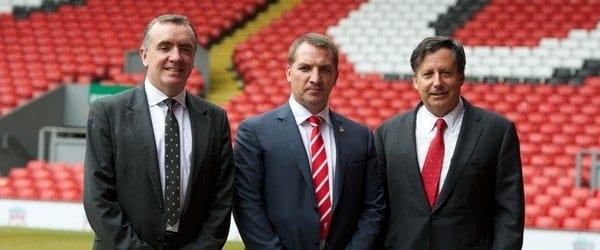
The biggest issue with the structure at the club is the lack of accountability on transfers. There is no real transparency in who makes the final decision on players, this leads to a perception that there is a tension in decision making.
The overarching transfer strategy at Liverpool is a sound one; recruiting young players and developing them into stars. But that isn’t the entire picture – when the club has looked to more established names, in the higher end of the market, it has so far struggled to source value or recruit the level of player we aspire to sign.
The strategy at that end of the market seems far less clear, the recruitment of players from England seems a strange methodology for a club that is intent on sourcing value. It is near impossible to find value in the English market.
There seems to be a gaping hole in the structure at the club; somebody that has overall accountability for recruitment, and can ensure that there is a holistic and aligned approach to how we recruit players. Somebody that sets a direction of travel (e.g. we do not recruit players from England at the higher end of the market unless there is an exceptional case).
I do not buy into the idea that the transfer committee is a failure at Liverpool; but what it has given us is a bit of a halfway house that creates far too many distractions for the manager and the club. It creates a noise and a culture of politicking; there is a great deal of sense in sourcing collective knowledge, but decision by committee looks to be proving an idea that is hindering, not helping us.

A Sporting Director immediately brings overall accountability to our recruitment, and gives the club one decision maker. The concept of feeding information in and discussing targets by committee is still sound – and the manager is still a key part of that process – but is relieved of the burden of accountability for recruitment.
The first team coach
The days of a manager building a power base at football clubs are in huge decline. Most clubs now devolve power to different specialist disciplines across a range of areas. The first team coach is still one of the most important roles at the club; and can provide a competitive edge between success and failure.
But, if the structure is right, then in some ways clubs can be coach agnostic – e.g. a coach with the right credentials can slot in and the overall philosophy at the club doesn’t change.
If you look at the credentials that a first team coach needs to succeed at Liverpool, the ability to develop young players is absolutely critical. A coach that can guide players on that development journey from the academy into the first team is at the heart of the model the club is committed to.
Of course, you need more than being a good coach. You also need to be tactically strong and not averse to taking risks. In a game where money dictates what you achieve; the only way to bridge that gap is by looking at the game in a different way – not being afraid to take risks.
A coach that looks to the status quo is never going to succeed at a club like Liverpool, especially in the short term.
Is Rodgers the man to take us forward?
Brendan Rodgers biggest difficulty is his lack of a track record prior to Liverpool. He was 39 when he got the job, so joined us still very much in his development phase. At 42, he is still on that journey.
The lack of a track record has meant that Rodgers has been distracted by trying to build a persona; he has had to try and build a profile of a man that belongs at Liverpool, but this sometimes comes across as arrogance or over confidence when he talks.
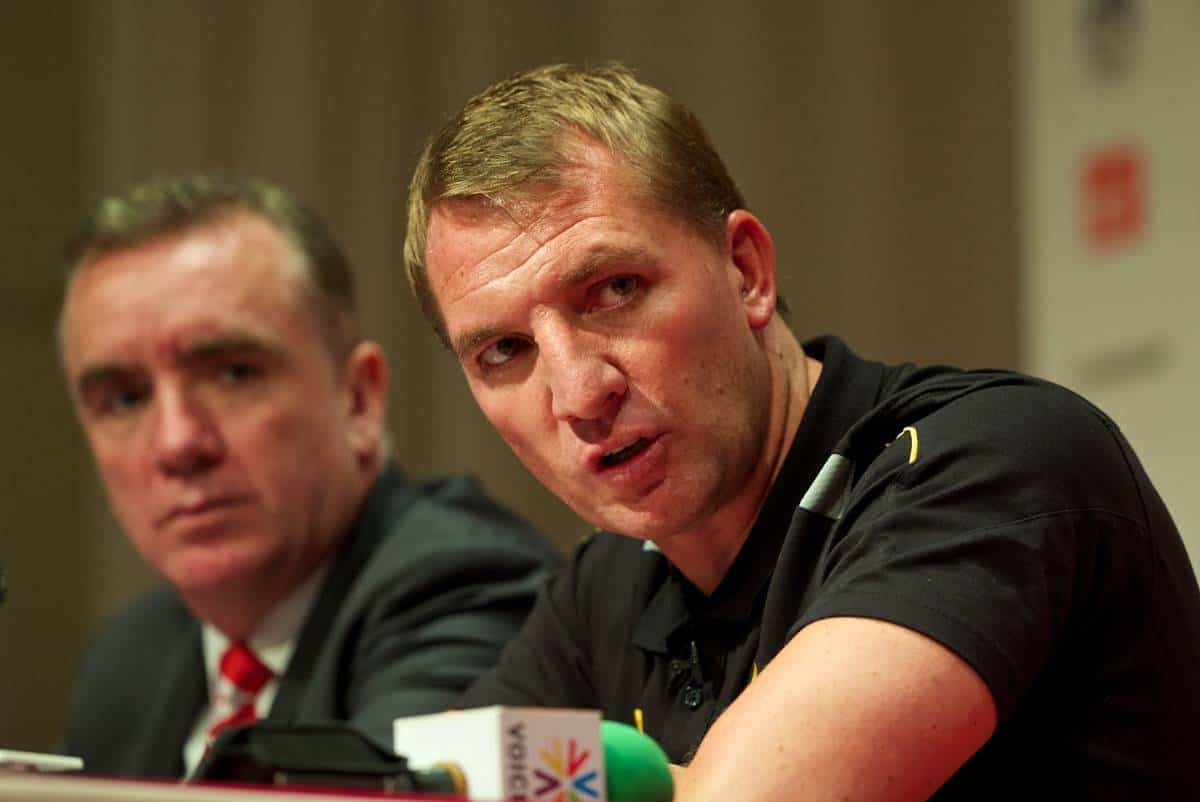
Rodgers’ refusal to work with a Sporting Director has also created an issue for him. It has exposed his weakness and left him wide open to attacks on his ability in recruitment.
The difficulty Rodgers has goes back to the question is managing Liverpool an impossible job?
One thing that you cannot say about Rodgers is that he lacks ambition or purpose. He has also proven that he can innovate – the move to 3-4-3 in December took us on another incredible run of form, our second in two seasons under Rodgers.
People like to shift the narrative when it comes to Rodgers, but I don’t think that is exclusive to him. The frustration of a promising season fading into nothing means that questions have to be asked – but it doesn’t mean that the manager has got everything wrong. It is easy to say that Luis Suarez took us to a whisker of the title last year, and Rodgers had nothing to do with it. But the flip side of that is if Rodgers has the right tools, then he is capable of competing at the top of the league.
This season has been underwhelming because we made the wrong decisions on recruitment in the summer. It has meant that we have had to find a way to function as a team, but it has key parts missing. That is the key area we need to fix.
Most of the things we did well last season we haven’t done well this, we’ve lacked pace and intensity, we haven’t pressed the ball. Luis Suarez may have set the tone, but we’ve tried to redress the balance between attack and defence this season which in some ways has diluted our identity in a negative way.
I think Rodgers can succeed at Liverpool in the right structure, it may mean he has to change his ideas on his role at the club, but he has the attributes to help build the club to where they want to be. The difficulty he has is that so do others, the likes of Jurgen Klopp are also a great fit for Liverpool.
The bottom line is that managing Liverpool is an impossible job, as anything other than sustained success is deemed as failure, which is why the structure at the club should devolve so that each area of accountability has clear boundaries, and that the success or failure of the club is not the responsibility of any one man.
One thing is clear, to overachieve we need everybody at the club aligned – and it is only by overachieving that we will see any kind of short term success.
Rodgers can still be the man to guide us there, but he may need to change his ideas first.

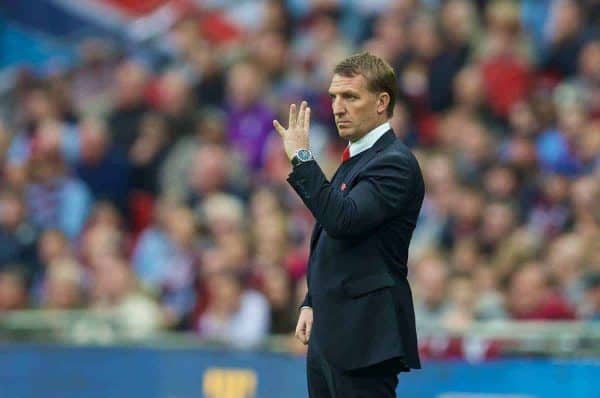

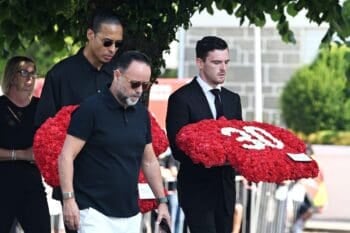
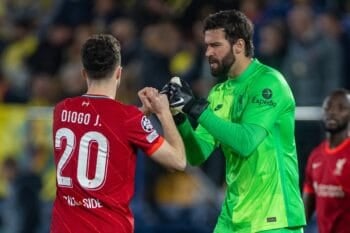
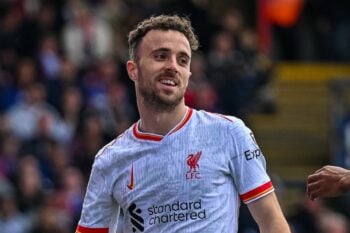
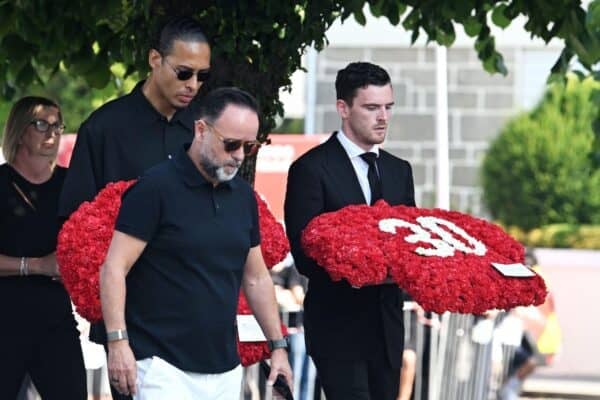
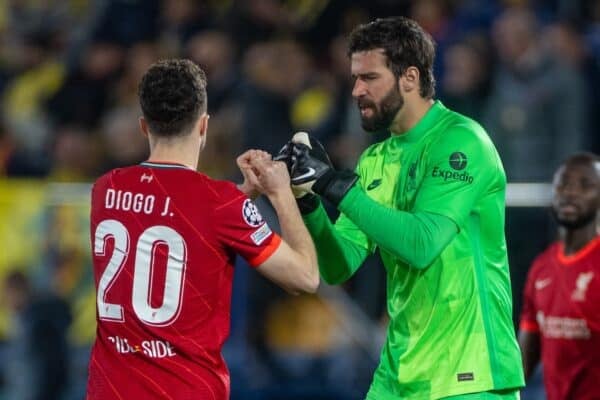
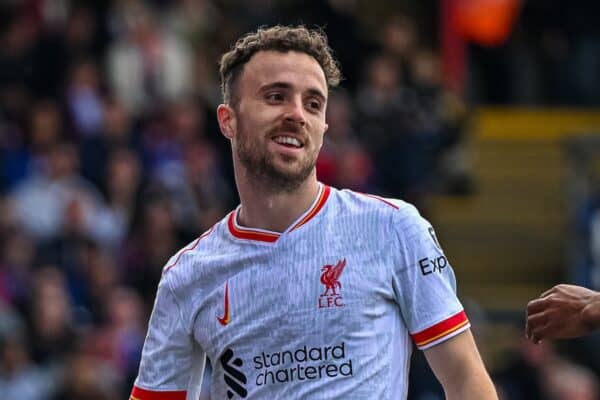
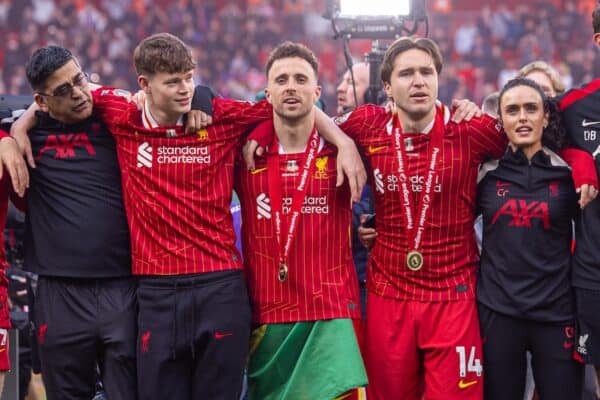
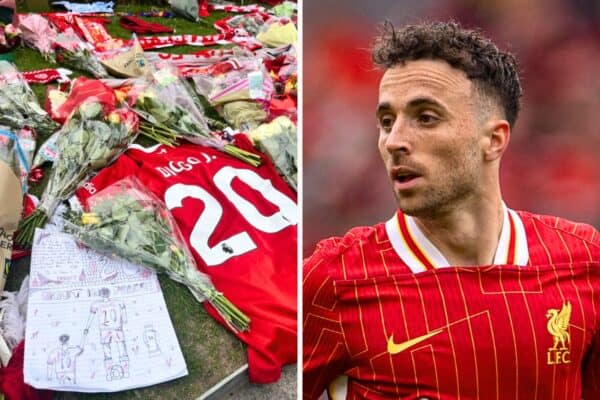
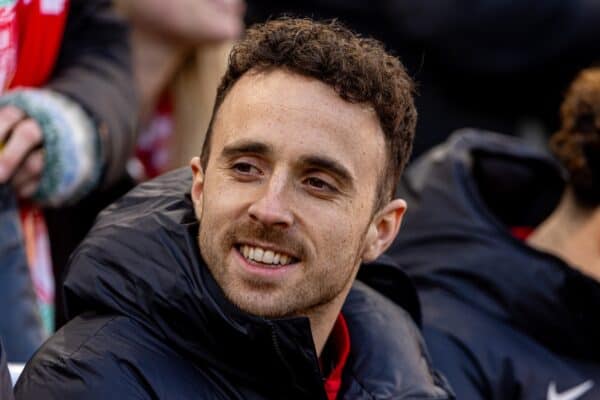
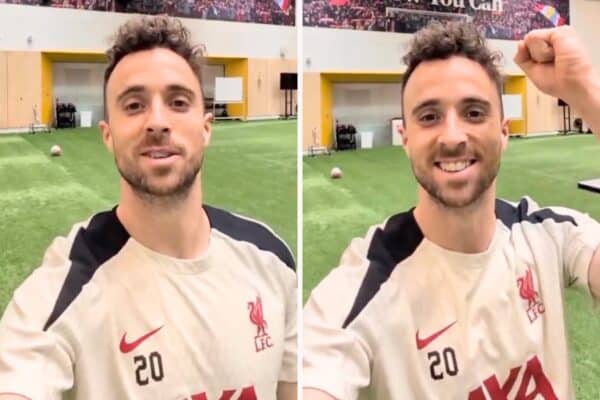
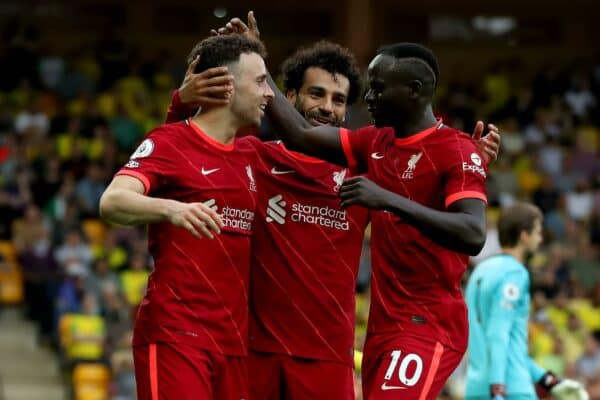



Fan Comments